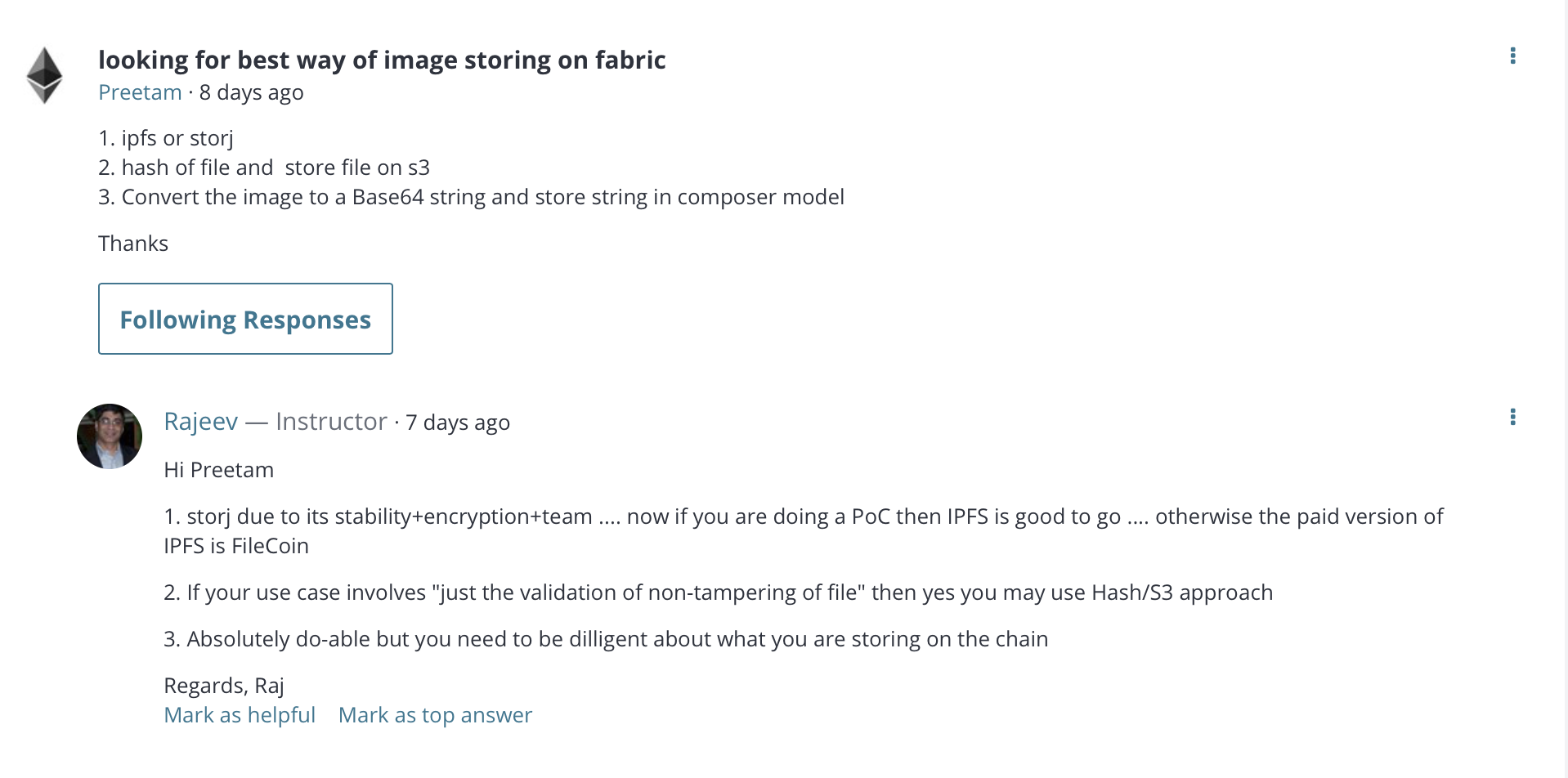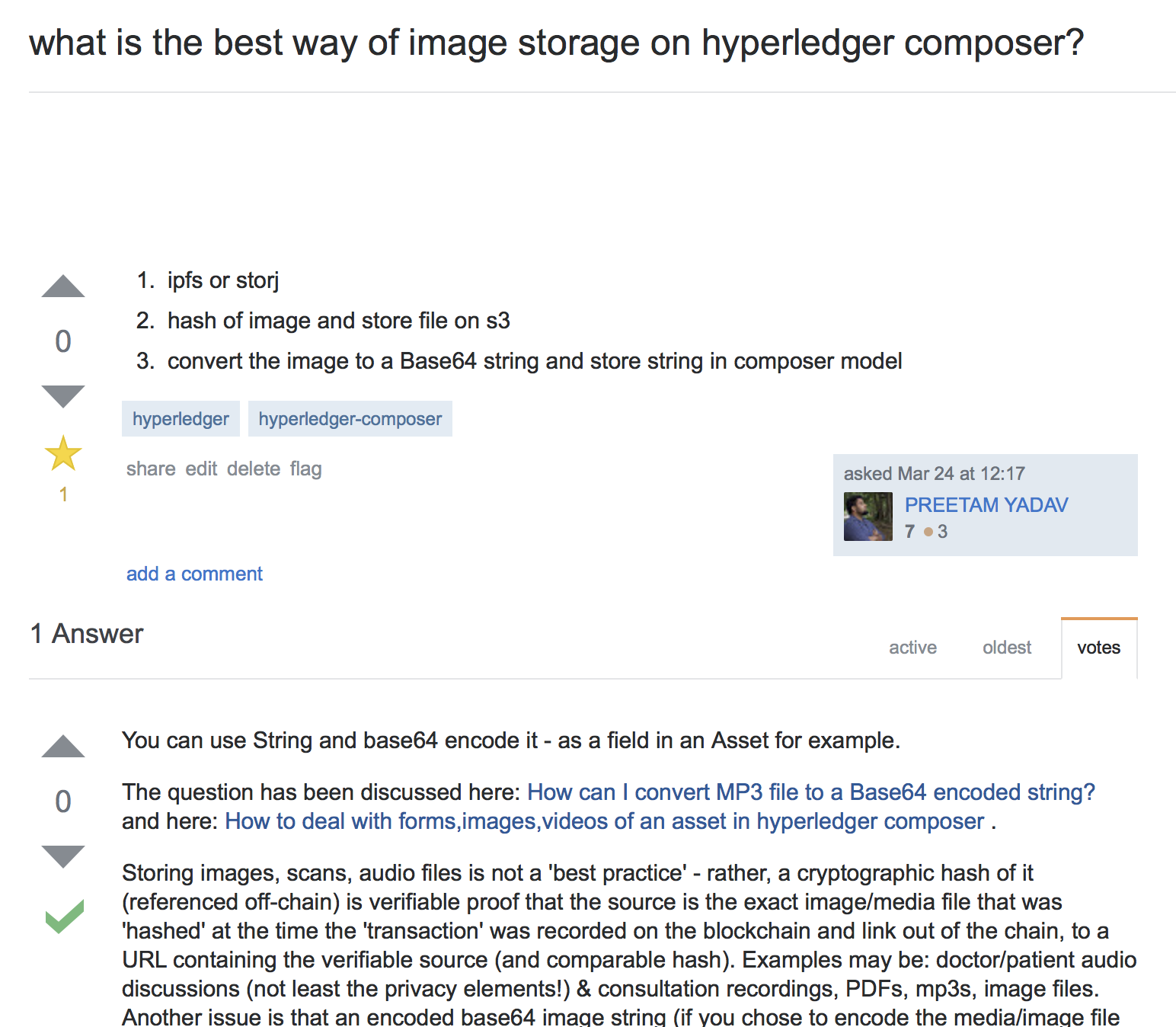Screenshots
composer-storage-ways
Test environment and random stuff for hyperledger fabric and composer
Prerequisites
- Install following as a global variable
- Install
composer-cli - Install
composer-rest-server npm install -g <aboveStuff>
1. Setup Fabric for the first time
These commands will kill and remove all running containers, and should remove all previously created Hyperledger Fabric chaincode images: Use only if you want to remove all data and get a HARD RESET.
- Removes all docker instances, cleans images, causes you to lose all data stored on docker
- If other applications are using docker, better to remove the fabric related containers individually.
docker kill $(docker ps -q)
docker rm $(docker ps -aq)
docker rmi $(docker images dev-* -q)
- Remove all current composer cards
composer card list
composer card delete -n <card_name>
- Run fabric for the first time. Creates a PeerAdmin card that is used for all instances of chain-code. Also removes all your current data, cards etc
All the scripts will be in the directory /fabric-tools.
cd ~/fabric-tools
./stopFabric.sh
./teardownFabric.sh
./downloadFabric.sh
./startFabric.sh
./createPeerAdminCard.sh
-
Confirm that fabric has started
docker pswill show 4 containers running -
Confirm a PeerAdmin card has been created
composer card list should show PeerAdmin@hlfv1 with no business network assigned
- Initial Setup is complete. Time to launch a chain code instance
2. Launch a business network/ chaincode instance
- Generate the Business Network Archive (BNA) file from the root directory:
composer archive create -t dir -n .
-
Successfully created a file called
composer-file-stroage-ways@0.1.0.bnain root directory -
Install the runtime instance for the .bna file. This HAS to use the PeerAdmin@hlfv1 card
composer runtime install --card PeerAdmin@hlfv1 --businessNetworkName composer-file-stroage-ways
- Start a network and create a new networkAdmin card for the business network
composer network start --card PeerAdmin@hlfv1 --networkAdmin admin --networkAdminEnrollSecret adminpw --archiveFile composer-file-stroage-ways@0.1.0.bna --file networkadmin.card
- Import the new networkadmin.card generated
composer card import --file networkadmin.card
- A card
admin@composer-file-stroage-waysshould be visible withcomposer-file-stroage-waysas network assigned
composer card list
- Activate the card by setting the certificate
composer network ping --card admin@composer-file-stroage-ways
- To remove everything and start from scratch, follow step 1
3. Close fabric safely and save its state
- Go to the folder containing the
docker-composer.yamlfile
cd ~/fabric-tools/fabric-scrips/hlfv1
docker-compose stop
4. Restart a previously deployed network
cd ~/fabric-tools/fabric-scrips/hlfv1/composer
docker-compose start
-
Takes a few minutes to start.
docker psshould show 5-6 containers running -
To update an instance with new chaincode we use
https://hyperledger.github.io/composer/reference/composer.network.update.html
composer network update -a composer-file-stroage-ways@0.1.0.bna -c admin@composer-file-stroage-ways
5. Other useful commands
Card commands
Option feature is to delete existing cards. Network and System admin cards should not be removed unless a hard reset is reuired
composer card list
composer card list --name <cardName>
composer card delete -n <cardName>
API endpoint lists
User add API
- Create a new user (Base64 string way)
/api/v0/users
Drug Assets API (ipfs way)
- Create a new drug (POST)
/api/v0/assets
Drug Assets API (off-chain external cloud storage way)
// pending

